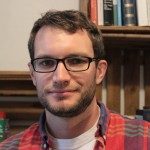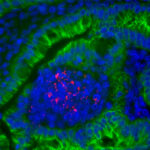I was 100% sure that I would become an ocean explorer and marine biologist pretty much since I went to primary school. This dream was still very much alive when I started studying biology in landlocked southern Germany, so in parallel I trained as a scientific diver at the German Polar Institute (AWI). The opportunities that came with this training to work as diver on research expeditions in Chilean Patagonia and arctic Svalbard were by far one of my best scientific experiences. Staying true to the marine realm, I joined the Red Sea Research Center at KAUST in Saudi Arabia for my PhD work, yet I swapped the diving equipment for a computer keyboard and delved into the genomic underlying of corals and their intracellular, symbiotic algae. Being fascinated of how one eukaryotic cell can live and proliferate within another eukaryotic cell is what then ultimately brought me to the malaria parasite.
Plasmodium falciparum evolved seemingly extreme measures in terms of (post-) transcriptional regulation that allows it to efficiently replicate within and transmit between a human host and mosquito vector, making it a unique model to study these processes. The fascination for this parasite keeps growing the more I learn about it, and although not literally, I still dive into a new unknown with every day in the lab in the hope that our research can ultimately benefit those that are affected most by this disease.



